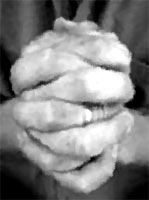This movement may be understandable in our current society due to the advancement of communication and electronics, but the idea was not born in our generation. It appears to be a characteristic flaw in the nature of humankind. Governments, education, and religion are, and always have been, subject to these phenomena. Most governments have tended to evolve from somewhat simple oversight to the ultimate complexity of bureaucracy. Education often moved from the old saw of "A university is a professor on one end of a log and a student on the other," to the complexity of liberal arts undergraduates and a specific advanced degree with all kinds of addendums.
Religion must be the most difficult of all to keep simple. Something inside us seems to demand more and more ritual and great and greater complexity. Each reformation has sought to return, in some measure, to less complicated forms. However, nothing can seem to hold back the tide and eventually the rituals become more and more complex.
The worship assemblies of the early church appear to have been rather informal and generally centered on simple needs and experiences. While each individual was intimately involved, the assembly was a time of shared relationship. Over time, however, it became a pageant rivaling or exceeding the great temple worship of Judaism.
Look at prayer, for example.
How can one compare the lengthy and involved prayers of today’s assemblies with the pattern Jesus produced when asked, "Teach us to pray"? (Luke 11:1) Even the admonition that discourages us from long prayers — remember Jesus said that the pagans liked to use long prayers — did not impact current practices. In his model prayer, Jesus taught the following very simple principles about prayer:
- Praise the Father and seek His will
- Request the barest essentials of daily life
- Remember that forgiveness of others is prerequisite to personal forgiveness
- know that it is God who orders one’s daily life
Does this sound complicated? Not in the least.
Is it the only form for prayer? Of course not. Paul and James both teach prayer for various reasons not specifically included in the prayer of Jesus. The point is not so much in finding a rigid pattern or list to pray, but in knowing our purpose for praying to the God who knows our needs before we ask and wants us to pray to remind us of our dependency upon him and need for a relationship with him.
Do you sometimes wish for the days when life was less complex? You will not turn back the complexity of the world, but you can restore a semblance of simplicity to your own life. If we spend more time listening to God than trying to impress Him, or each other, we might just find that real power and peace are still found in simple things.








Reader Comments
Archived Facebook Comments